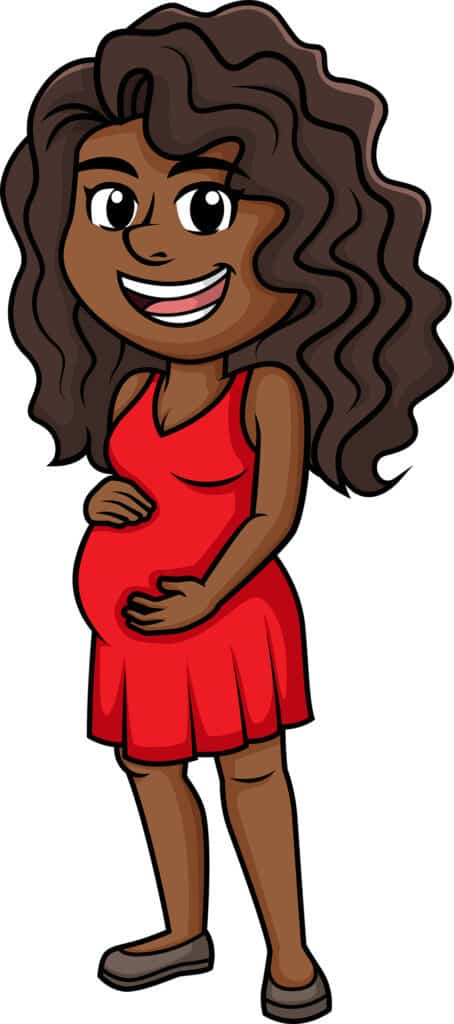
Would it not be great to be able to speak another language? There are so many good reasons for learning a second language, and yet learning a second language can feel impossible. The amount of memorization is overwhelming, and it feels like it takes forever for the language to become second nature, if it ever does.
Simply put, learning a second language is difficult because you were not born into the language, and now that you are an adult, chances are you are trying to learn a language in a way that is counterintuitive to the way you learned your native language in the first place.
This article will start by unpacking what adult brains are trying to accomplish when learning a second language. After figuring that out, it will compare that with what baby brains were trying to accomplish when learning the language that is now spoken without thinking twice about it.
Contents
Learning the Wrong Way

Part of the difficulty has to do with how people learn a language. If, as a native English speaker, you have ever taken a grammar class on English, chances are you found the class intolerably difficult. The rules seemed strange and arbitrary and impossible to apply to actual examples of spoken English.
Ironically, when people try to learn a second language, they often start by trying to get the rules right first since they try to absorb new vocabulary and new ways of forming sentences.
Unfortunately (or fortunately, depending on how your brain is wired), language is not like math. In math, you learn the rules that govern different equations, and you use those rules to balance or solve those particular equations.
Language Is a Skill
One reason why second language learning is more difficult is that it is skill based and learning any skill isn’t easy! (I’ve addressed the skill factor more here if you’d like to check it out, too.)
Language is more like using clay to make pottery. To make pottery, you must know about clay and how to form it, and what factors can influence it. But every project is slightly different. Depending upon temperature and how dry your clay is, forming it into a pot can require a large skill set.
That is what language is: a skill. When talking about language and how it is learned, one fact is critical to our understanding. When learning a language for the first time, it was an unconscious process that involved:
- Listening
- Imitation
Your language skills developed as you were developing from the infant stage through to pre-adolescence.
Ultimately, the best way to learn that language is to try to recreate the state of immersion experienced when first learning a language. Of course, as you will see, you cannot completely recreate that state. However, you can do a lot to try to get your brain to learn the way it once did. Naturally, there are significant difficulties to overcome.
What You Have Learned Blocks What You Can Learn

There is one thing that is important when you are considering a new language, which is unlearning previously acquired knowledge. After all, knowing something does not mean it is correct. A perfect example of this is grammar.
Why should it be so hard to learn about a language that you have been speaking all your life? Because you have been speaking it all your life. You have grown up immersed in the language. Therefore, you write and speak without thinking about adherence to any given rule. You just do it, and you are likely making mistakes that seem correct.
How You Think of the Second Language
Your native tongue dominates how you think and how you understand the meaning of things. So, when you try to learn a second language, you will probably find yourself thinking of that second language in terms of your own.
- You will want to define the words of that language by finding corresponding English words. I’ve recommended my EL students carry around pocket-size spiral notebooks like this from Amazon.
- You will want to understand how the syntax (structure) of that language works by finding corresponding examples in English.
You will do these things simply because English is what you know, and it will directly impact your ability to learn a second language.
How You Speak the Second Language
This is also the case with speaking a second language. Because you understand it in terms of English, you try to speak it in those terms, which means you have added the step of translating in your head from English to the second language before it even gets to your tongue.
The problem is that this actually hinders learning instead of helping because you are constantly checking the language that you are learning by the language you know. Ultimately, this blocks you from understanding the language you are trying to learn on its own terms.
Too Old

Researchers have found that there is actually a cap on a person’s peak learning ability in general. This peak may be bad news for some of you, but your learning ability peaked out at about 18. However, if the learning peak has passed for you, it does not mean you cannot learn anything new.
If your learning peak has passed, it just means that your brain is not as agile at the process as it once was. No one really knows why it is the case that 18 is the magic number. Researchers just know that it is. For Language learners, the news gets a little worse. You passed your language learning prime after you were 10 years old.
Once you turn 11, with your native language (or languages) established in your head, learning new languages is more difficult because the process requires a new space in your brain. It cannot add on to the old one occupied by your native tongue or tongues.
But all is not lost. By studying how we learned a language initially when we were kids, we can learn a lot about why learning a second language is so hard now. We can also learn some tips from our former experience to make learning a second language as adults a little easier.
How Did We Learn Language in the First Place?
Learning language naturally, like when you were a kid, is a process that is best described by the word “immersion.” You learned to understand and speak words because they surrounded you from the time you could hear.
No one taught you your native language in the classroom sense of the word. You heard it all around you, and you started to imitate it. Eventually, that imitation got recognized by others as the same language that they were speaking.
As you spoke more and the people around you responded more, you learned what was generally accepted as the correct usage and what was not.
So, you learned your native tongue because it was all you heard. In other words, you were immersed in it. Knowing what that process looks like is important going forth.
Immersion: extensive exposure to surroundings or conditions that are native (Source: Merriam-Webster)
In the Womb

It is pretty commonly known that babies in the womb can recognize the sound of their mother’s voice. But did you know that babies can also recognize the sound of their mom’s language?
At birth, a baby already has the ability to distinguish between the large number of sounds that make up all the languages in the world. That’s one reason why many pregnant moms choose to use WavHello BellyBuds to amplify language for their baby in utero (linked to Amazon).
Different sources point to different numbers to say how many distinct sounds there are in the world’s languages. The short answer is that there are a lot. To put it into some perspective, the different sounds employed by the English language equal somewhere around 45.
Straight out of the womb, babies are capable of a few different things, including:
- The ability to recognize a wide array of language sounds without preference for a certain set beyond recognizing which sets of sounds mom uses.
- The ability to recognize the difference between language and another kind of sound, like a ball bouncing or tin foil being ripped.
What this means is that a baby is primed and ready to learn any language whatsoever. So, for language learning, the mind of a baby is as good as it gets.
What Infants Hear
Babies have a window of about a year before they lose the ability to differentiate between different language sounds. So, what changes in that amount of time?
Because they are surrounded by the language of their home and culture, their brains begin to focus on only those sounds that their native language uses. They naturally begin learning more about the language they are hearing by only listening for the sounds that language uses.
What Infants Say

The learning process includes more than this. During this time, babies begin to use pre-language sounds, which are more commonly referred to as babbling or cooing. With these sounds, babies try to imitate the language they hear around them. As with the ability to hear all the sounds of different languages, babies can mimic those sounds.
As they get older, the baby chatter can even start to take on the inflection and cadence of the language they hear, just without the actual words.
But as with the ability to hear different language sounds, the babble of babies eventually focuses on the language that surrounds them. After their first birthday, babies have dropped all other sounds in favor of the ones they hear most often.
During this crucial first year, babies can hear groups of sounds and when words end and begin. By the time they are one year old, babies can retain the meanings of words and start to mimic those words.
The Toddler Years and Beyond
Language learning typically explodes during the toddler years, as anyone knows who has had a two-year-old.
Toddlers begin to understand the basic sentence structure of their native language, enough to make the endless demands for which they are famous. This understanding is simple and usually focuses on adding a verb to their favorite repeated noun. Some examples of what a toddler might say include:
- “Hold me?”
- “Pick up?”
- “I hungry!”
By the time they get to the end of the toddler years, they are saying sentences in a mostly grammatically correct way. After the toddler years, it is all about expanding vocabulary and increasing the complexity of their sentence structure.
Children of Bilingual Homes

Before we circle back to observations about language learning for adults, it is important to note that children who group up in bilingual homes are actually optimizing the best time of their lives for learning a language.
Because babies zero in on the sounds of the language they hear the most, it does not mean it has to be one language. They can focus on the sounds of two or more languages. They just have more sounds to differentiate from as they get older.
Toddlers of bilingual or trilingual homes will sometimes mix languages as they form sentences, but it is a normal part of how a child learns in that environment, similar to a child of a monolingual home getting the tense ending for a word wrong. “I drawed” instead of “I drew” is a great example of this.
Learn Like a Child
The reason learning a second language is so hard is because people cannot make their brains go back to the developmental state that begins with infancy. Just as with other activities, the prime years for language learning are irretrievably behind most people.
But people can learn from how children learn language and apply those things to their adult brains. And while it is not likely you will achieve anything near native fluency when learning as an adult, you can be functional and even fluent in a language.
It Is All About Immersion

Learning a second language is a commitment to immersing yourself in that language. Of course, the best way to do this is to buy that plane ticket to Paris and live there for a couple of years.
For most people, though, that is not an option. But if you think about it, there are a lot of ways you can immerse yourself in a language that would feel pretty overwhelming.
- Set your social media and web searches to the language you are trying to learn.
- Read your news feed in the second language you want to learn.
- Watch foreign language films in that second language you are aspiring to but without the subtitles.
- Set the audio of movies in English to the language you want to learn, if possible.
You can even go beyond that. Watch kids’ cartoons in your second language. The ones that teach kids about simple ideas using lots of pictures and slow, articulate speaking are ideal for learning. What about comics? You get the same idea with pictures related to words, but it is on a more complicated scale that could be beneficial.
Remember, the more you immerse yourself in the language, the more you will absorb. As a side note, if you choose a language that will be more familiar to English speakers, like Spanish, you will have an easier time with immersion.
It Is All About Attitude
Remind yourself that this is not a required foreign language class in high school. You are not being graded.
With that in mind, have fun. Do not be afraid to make mistakes. Remember that a baby starts imitating language by babbling. Well, what are you waiting for? In addition to your normal exercises, make pure nonsense sounds, but try to imitate the sounds you are hearing. The point is that you can have fun with this.
It Is All About Motivation
Having a good and open attitude is easier to do if you keep in mind the thing that is motivating you to learn. What about that trip to Paris or those people who come into your business that you want to communicate with? Have a goal that keeps you motivated to learn.
It also helps if there is something about the culture that you are really interested in that language would make it easier or more fun to understand. Other cultures offer many unique and enriching experiences and perspectives, and language is the skill that can take you deeper into a culture.
Maybe you really like Cuban music and want to understand the words. Maybe you want to go to Germany to learn about beer making from the locals who make a batch large enough to serve their village.
Just because a person passed their language learning peak at the venerable age of 11 does not mean they cannot learn new things. Whatever it is, find something about the culture that really grabs your interest. Gaining an appreciation for new and exciting things will help you push through the difficulty of learning a second language.
Want to dive into the motivation it takes to learn a second language? I have an article dedicated specifically to motivation here.
The Final Talking Point about Why Second Language Learning is More Difficult
Learning a second language is hard work, and people often make it harder by approaching it like a math problem instead of a skill. People are also hampered by years of thinking and processing in their native tongue. Learning a second language is more than just learning another set of words. It is learning a new mindset altogether.
Perhaps it is no mistake that babies start to pick up a language before they become self-conscious and easily embarrassed. They learn by imitating the sounds around them. Learning a second language is one task where you actually want to be a baby about it.
Additional Sources
https://www.ef.edu/blog/language/why-learning-a-language-is-hard/
https://sites.udel.edu/q-lab/how-the-language-we-know-makes-second-language-learning-harder/
https://time.com/5261446/language-critical-period-age/
https://www.verywellfamily.com/how-do-children-learn-language-1449116
https://www.kolimi.com/blog/how-many-different-sounds-languages/
